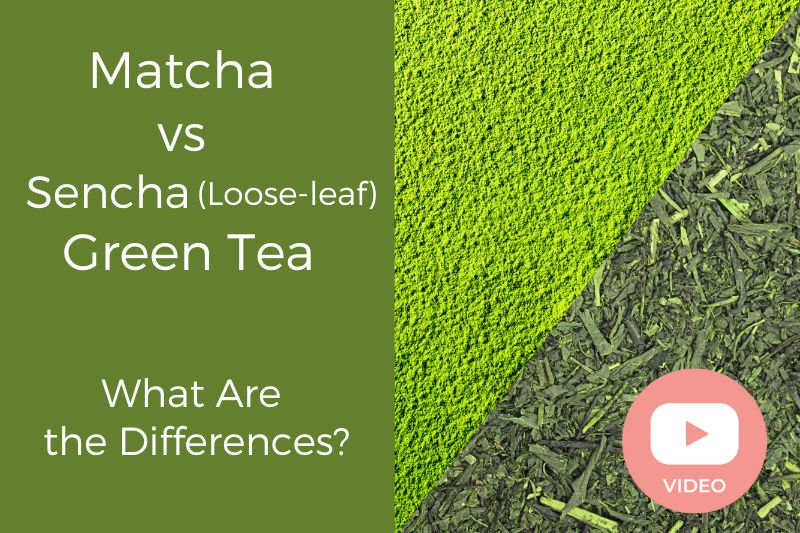Green tea is a popular beverage all across the globe. It is consumed almost daily in many parts of East Asia and is often the first choice of tea in other parts of the world. It is one of the most common teas consumed by people from different countries, cultures, and generations.
But what makes green tea so accessible? Perhaps the biggest reason why so many people drink green tea is because of its health benefits. However, while green tea is undoubtedly good for the body, not all health claims about it are true—or at least not entirely.
In this article, we'll talk about the health claims about green tea based on facts as well as dispel the myths that surround this traditional beverage.
Fact: Green tea can help improve eyesight
Aside from taking the best omega supplement for dry eyes, you can also improve your eye health by drinking green tea. Green tea contains gallocatechin, a flavonoid that helps protect the retina from harmful blue light. It also contains zeaxanthin and lutein, antioxidants that are beneficial for eye health, in trace amounts.
Myth: Green tea can help you lose fat
Many people believe that green tea can help speed up weight loss. Unfortunately, this is not entirely true. Although green tea does contain a stimulant that can increase your metabolism, drinking it alone does not help you lose a significant amount of fat. Drinking or eating a particular type of food or beverage won't help you lose weight unless you adopt a balanced diet and a regular exercise routine.

Fact: Green tea contains caffeine
Green tea contains about 35 milligrams of caffeine per cup, which is much less than coffee, which contains between 95 and 200 milligrams per cup. However, even though green tea's caffeine content is relatively low, exercise caution when consuming it throughout the day. Too much caffeine in your system can make you feel anxious, interfere with your sleep pattern, and cause headaches.
Myth: There is no caffeine in decaffeinated tea
Just like some coffee brands, decaffeinated green tea is not caffeine-free. You can expect around 2 to 10 milligrams per cup of decaffeinated tea, which is significantly less than a caffeinated version. If you want no caffeine whatsoever, you can opt for herbal teas instead.
Fact: Green tea can enhance mental alertness
If you find yourself more awake and alert after drinking green tea, it's because of the caffeine content. Thus, green tea is an excellent alternative if you want to cut back on coffee.
Myth: Green tea is the same as black tea
Green tea and black tea do come from the same plant. However, they are prepared using different methods, making them different from each other. One striking difference is that black tea contains more caffeine than green tea. So if you want a beverage with less caffeine content, go for green tea.

Fact: Green tea can reduce blood levels
Green tea is known to lower blood levels, which, in turn, increases the effectiveness of nadolol, a beta-blocker used to treat hypertension and other heart diseases.
Myth: All green teas are the same
Green teas differ depending on the method of preparation, brand, and source.
Fact: It is best to consume green tea plain
Adding sweeteners or milk to green tea does not make it entirely unhealthy. However, it is recommended to use natural sweeteners, such as honey or natural stevia, to sweeten your drink. Milk, on the other hand, can lower the health value of green tea due to casein's reaction to the antioxidants present. Thus, it is best to drink green tea as it is.
Myth: Tea does not expire
Even if your teabags look like they can last through the apocalypse, they do expire. Toss your green tea if it's been stored for more than six months. If you try to drink it, you'll find that the flavonoids have been significantly reduced, thus affecting the quality of the tea.
Fact: It is beneficial to add citrus to green tea
Squeezing a bit of citrus in your cup does not only improve the taste of tea, but it also helps preserve the flavonoids. It is wise to drink freshly brewed tea with citrus such as ginger tea with lemon to maximize its full health benefits.
Green tea is undoubtedly one of the healthiest drinks in the world. Aside from its traditional value, green tea offers many health benefits to its drinkers. However, if you want to consume green tea safely and responsibly, you must know the real facts about it.
This post was first published in 2022, but it was updated in 2023 just for you.
Get Free Bonus Books

Sign up for free to the Green Tea Club to get advice and exclusive articles about how to choose Japanese Tea, and tips, tricks, and recipes for enjoying Japanese tea.
About the author
Kei Nishida
Author, CEO Dream of Japan
Certification: PMP, BS in Computer Science
Education: Western Washington University
Kei Nishida is a passionate Japanese green tea connoisseur, writer, and the founder and CEO of Japanese Green Tea Co., a Dream of Japan Company.
Driven by a deep desire to share the rich flavors of his homeland, he established the only company that sources premium tea grown in nutrient-rich sugarcane soil—earning multiple Global Tea Champion awards.
Expanding his mission of introducing Japan’s finest to the world, Kei pioneered the launch of the first-ever Sumiyaki charcoal-roasted coffee through Japanese Coffee Co. He also brought the artistry of traditional Japanese craftsmanship to the global market by making katana-style handmade knives—crafted by a renowned katana maker—available outside Japan for the first time through Japanese Knife Co.
Kei’s journey continues as he uncovers and shares Japan’s hidden treasures with the world.
Learn more about Kei







